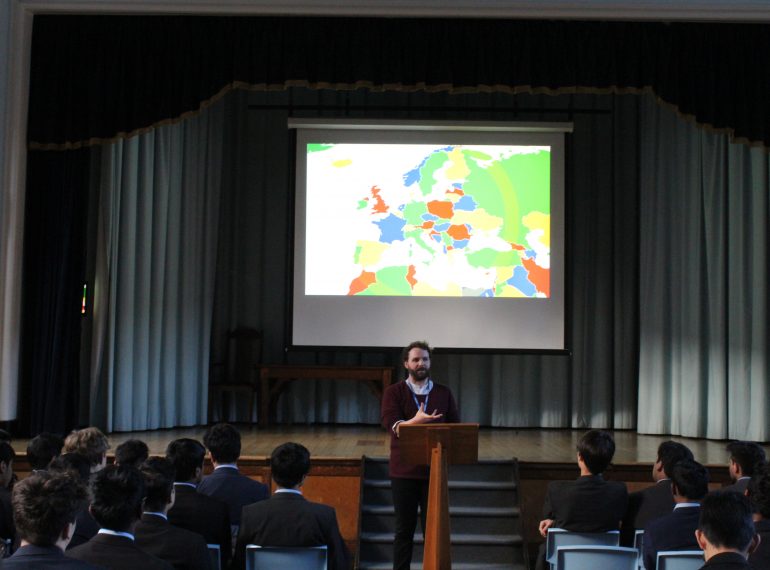
Europe expert Sam Evans led some lively debate about Brexit and cleared up a few misconceptions, too, when he visited the School to address QE’s young economists.
His talk, which centred on the modern history of Europe and on how the European Union functions, was delivered to an audience of some 130 Year 11 boys studying Economics.
A teacher and historian by background, Sam is the School Visits Officer at Europe House – the European Parliament’s London Information Office in Smith Square – and works with Involver, a social enterprise that helps organisations engage with young people. He is an Ambassador for Teach First, the Government-funded organisation that introduces top graduates into struggling schools, and has worked with NGOs on literacy in Uganda and Bangladesh.
Head of Economics Shamendra Uduwawala said: “Sam’s talk and the discussions which followed were very helpful in helping the boys learn about the world around them, especially in terms of how what they study in Economics lessons intersects with current affairs.”
Sam dissected the functions of the EU so that the boys could gain an understanding of how the various parts work and how laws are made within Europe. He also explained how Brexit will actually affect Britain.
The boys were actively involved in the lecture: there was plenty of time for discussions and a question-and-answer session.
The topics debated included:
-
- How democratic the EU actually is
-
- EU referendums, and whether it was fair that the boys were not able to vote
-
- The timeline of Brexit – how things have unfolded and what is to come in the future
-
- Whether Brexit will affect UK human rights laws.

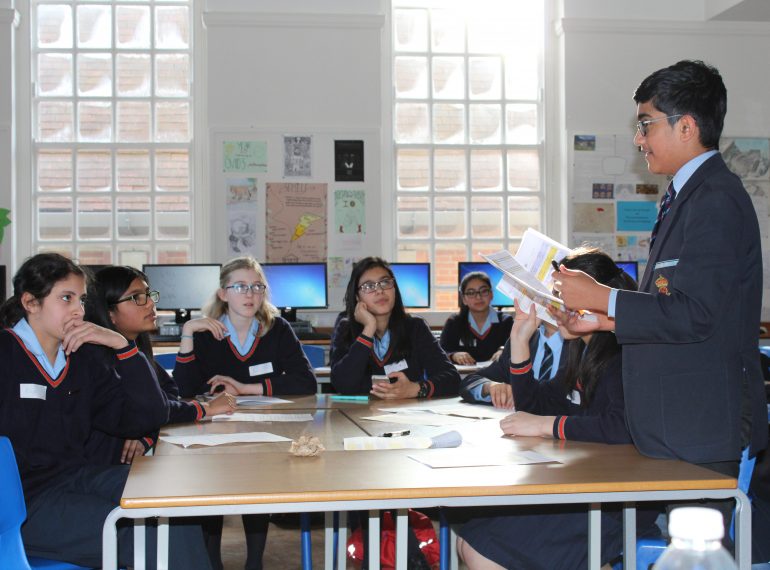

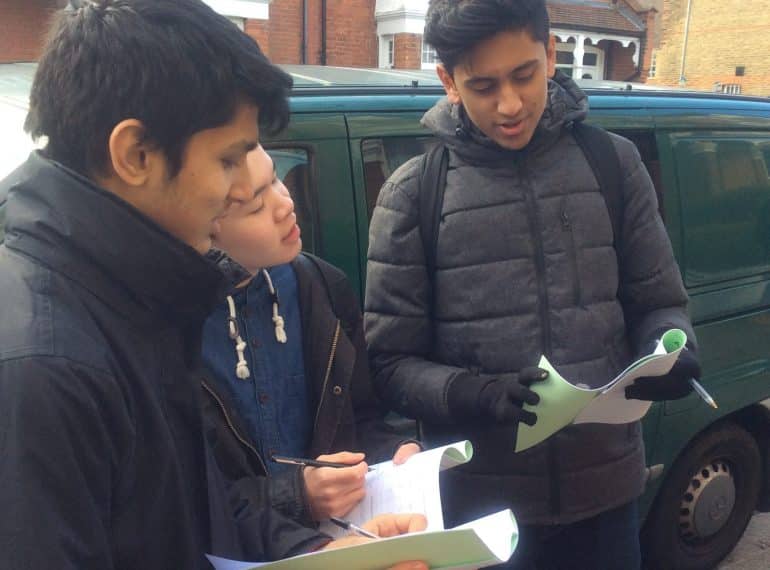
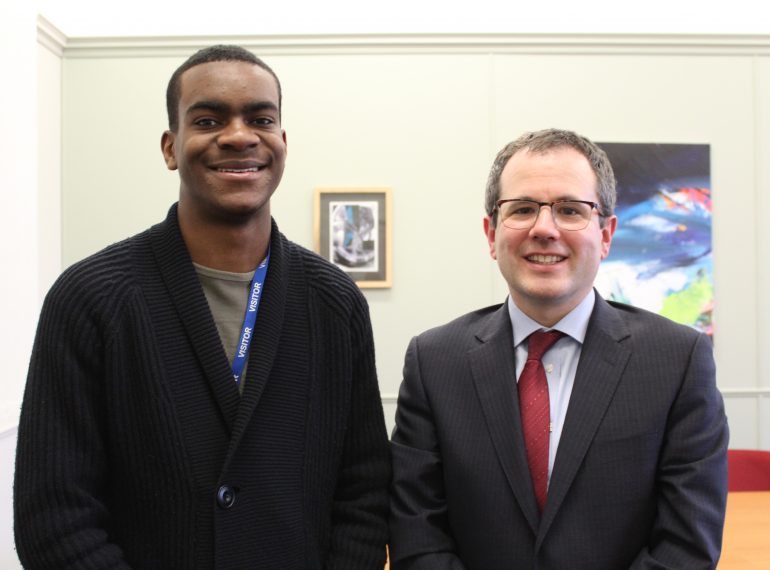
.JPG) ities furnished by Harvard for their post-graduates. And he explained how to register and prepare for SATs – the standardised US university admissions test.
ities furnished by Harvard for their post-graduates. And he explained how to register and prepare for SATs – the standardised US university admissions test.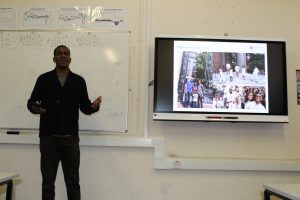 “It is the combination of breadth of curriculum and the extra-curricular opportunities that holds appeal for many of our boys who have a strong interest and ability across numerous disciplines,” added Mr Feven, who organised the visit.
“It is the combination of breadth of curriculum and the extra-curricular opportunities that holds appeal for many of our boys who have a strong interest and ability across numerous disciplines,” added Mr Feven, who organised the visit.